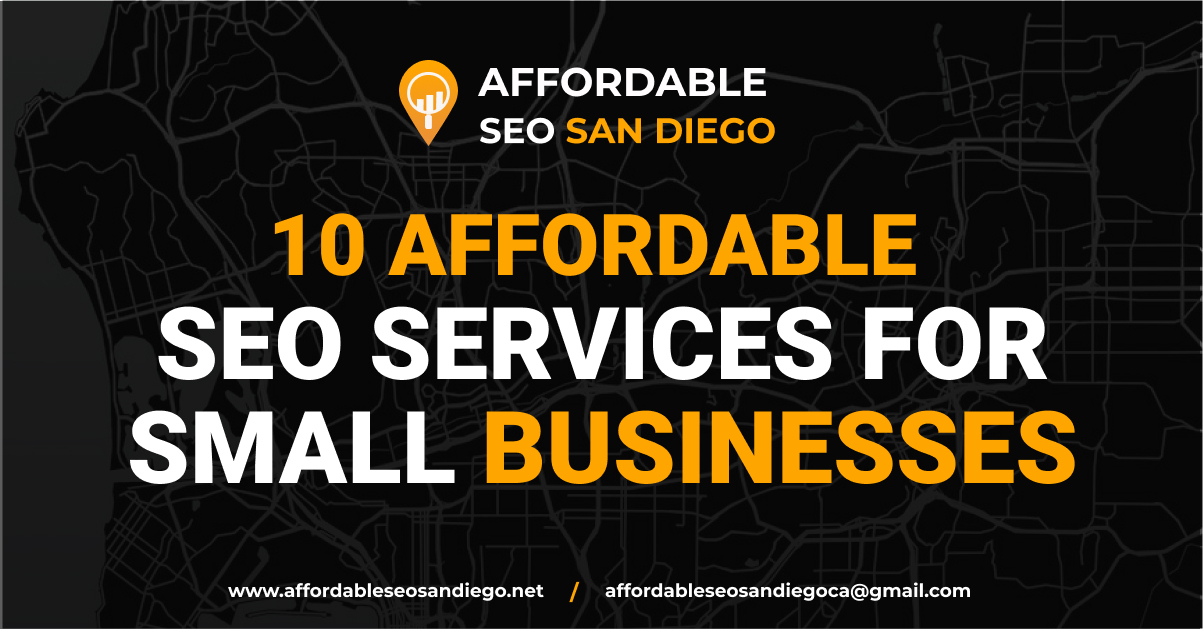Search engine optimization is essential for helping businesses rank at the top of search engines like Google or Bing. Generally, there are two popular types of SEO: local SEO and organic SEO; both are used to increase the visibility of websites with the help of different strategies. Implementing a solid plan is crucial to attracting new business, but picking specific tactics according to your business needs is essential.
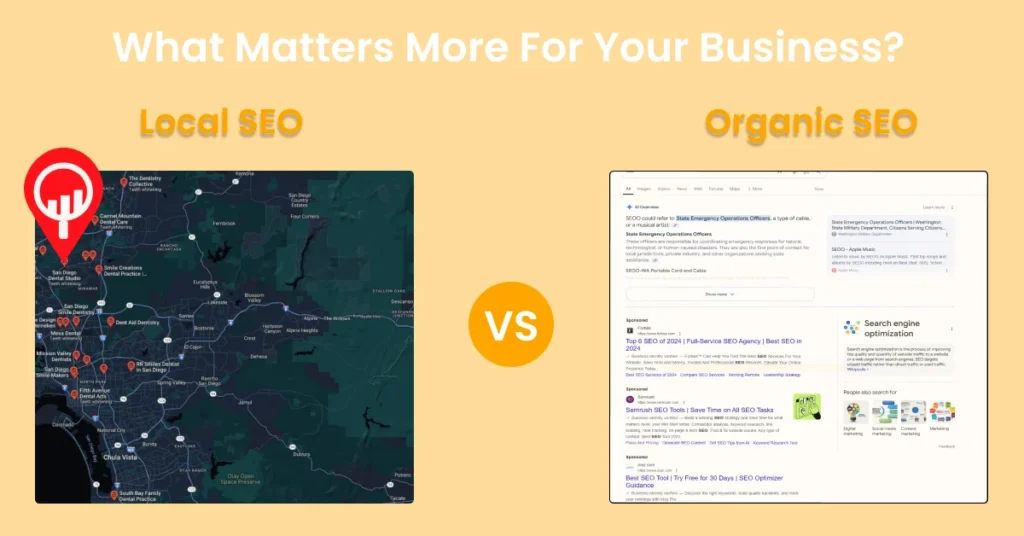
Organic SEO vs Local SEO
Organic SEO, also known as natural SEO, involves optimizing a website with the help of its content relevance, authority, and technical performance without looking at a specific location. On the other hand, local SEO targets the people nearby, helping your business grow in your local community.
Organic SEO targets a broader audience, while local SEO is crucial for businesses that rely primarily on local audiences, such as restaurants, dentists, or law firms. Organic SEO aims to boost the visibility for a wide variety of searches, whereas local SEO is designed to increase the visibility for local searches.
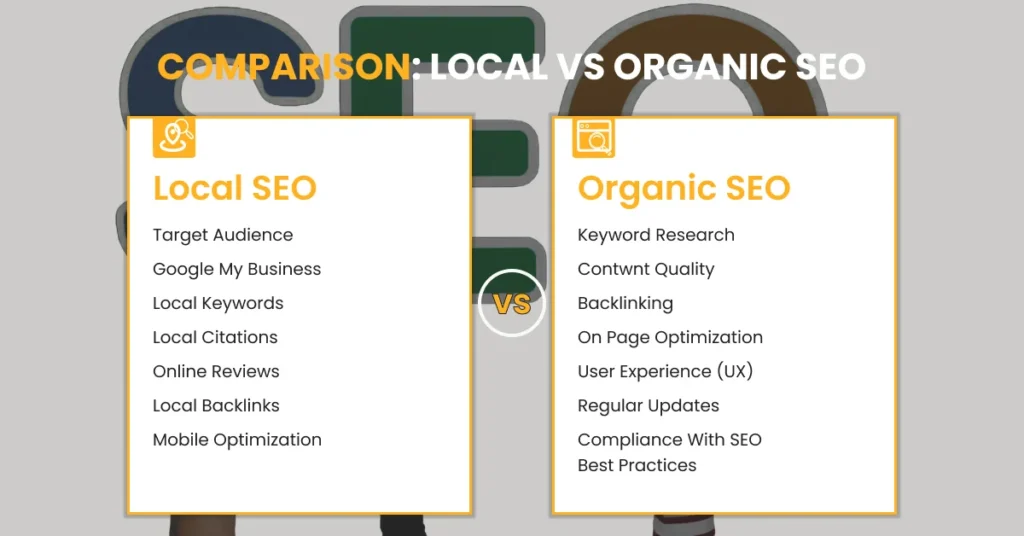
Key Differences Between Local and Organic SEO
Target Audience
- Local SEO audiences are people searching for products or services in a specific area.
- Natural SEO audiences are people who search for information on a national or global level, depending on the keywords.
Search Result Page
- Local SEO will typically display map listings and websites for local audiences based on keywords like plumber in San Diego or plumber near me.
- Organic SEO targets a broader audience and focuses on appearing in organic search results without including map listings.
Keyword Selection
- Local SEO keyword selections are based on location keywords, such as a dentist in San Diego or the best dental services in San Diego.
- Organic SEO keyword selection is based on non-location-specific keywords like how to find the best SEO consultant or how to write a blog post.
Google My Business profile
- Local SEO heavily relies on Google My Business’ optimized profile to ensure that businesses appear at the top of the GMB listing.
- Organic SEO does not depend on Google My Business Profile but focuses on website optimization and content quality.
What are the benefits of Local SEO?
Local SEO plays an essential role in the growth of local businesses. For example, a service provider like a local carpet services provider or contractor can significantly benefit from it.
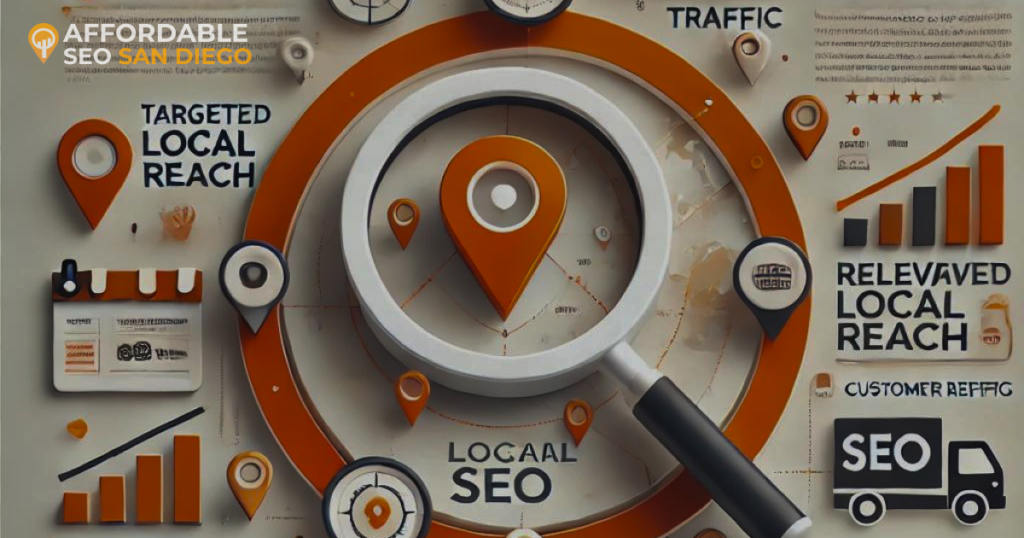
Here are some key advantages
Increased Visibility:
It will improve your visibility in local searches and help you to scale your business with local clients.
Relevant Traffic:
It will bring more relevant traffic to your website, whether you are a plumber, doctor, or roofing company. Local SEO attracts relevant clients to your business.
Customer reviews:
They play a massive role in getting positive reviews, which are game-changing for your business.
Increase Your Revenue:
More conversions lead to a boost in revenue for your business. You can 5x and 10x your business with the help of proper local search engine optimization.
What are the benefits Of Organic SEO?
Organic SEO also plays a crucial role in businesses’ long-term online presence.
With the strong visibility of your website, you can reach a broader audience without targeting any specific location. This is mainly used for informational websites or online stores because they target a global audience.
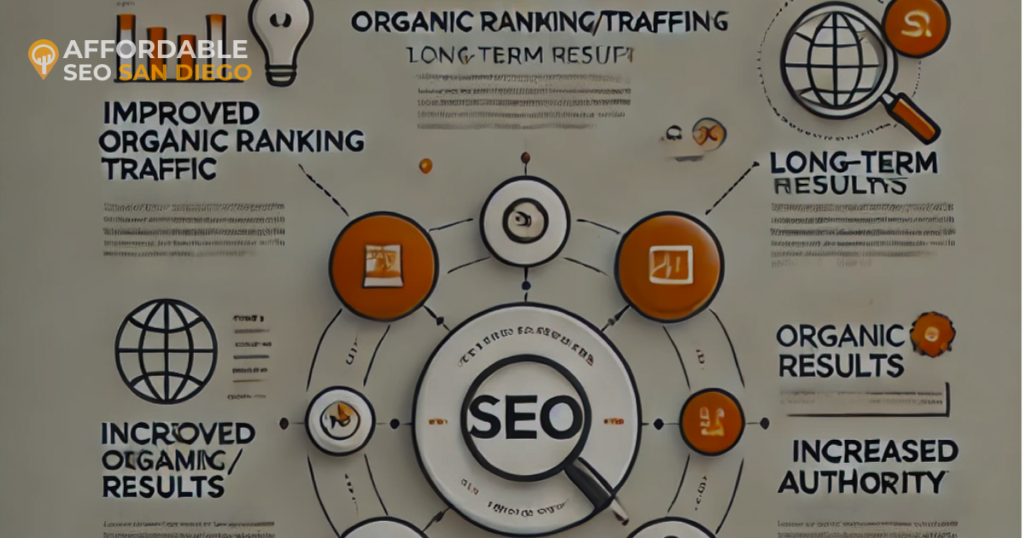
Improved Organic Ranking/Traffic:
It plays a massive role in bringing organic traffic to your site.
Long-Term Results:
Your website’s visibility regarding natural search ranking could be sustained for an extended time.
Increase Authority:
Backlinks are key in building a website’s authority and serve as a foundational pillar for site strength.
Conclusion
Both local and organic SEO play crucial roles in website visibility, and they can be achieved organically in both domains. However, strategies are different for both of them.






